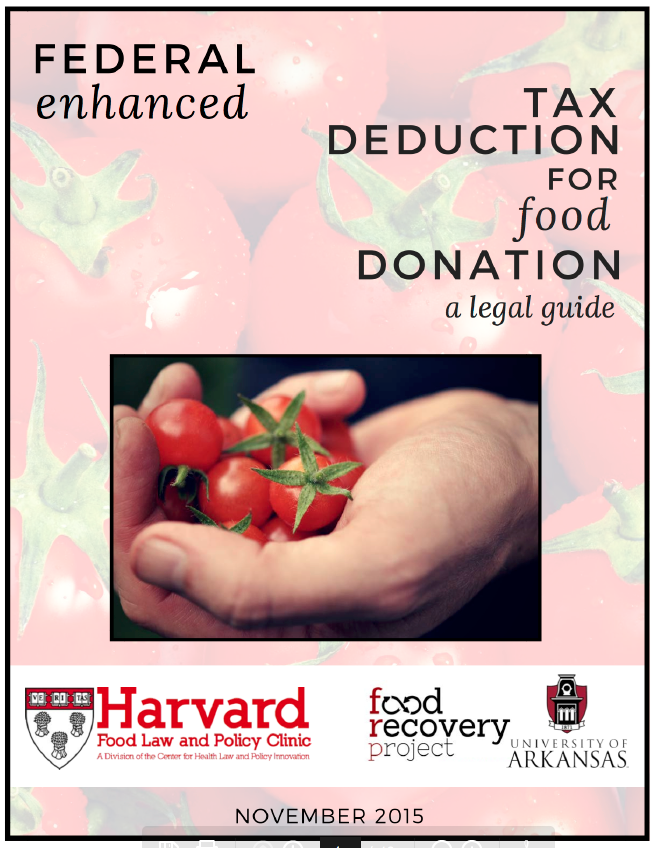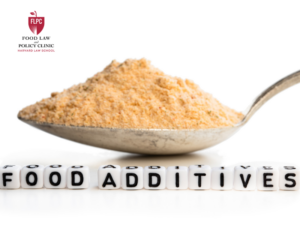 An estimated 40 percent of food produced in the United States goes uneaten; at the same time, more than 14 percent of U.S. households are food insecure at some point during the year. Diverting a fraction of the wholesome food that currently goes to waste in this country could effectively end food insecurity for all Americans.
An estimated 40 percent of food produced in the United States goes uneaten; at the same time, more than 14 percent of U.S. households are food insecure at some point during the year. Diverting a fraction of the wholesome food that currently goes to waste in this country could effectively end food insecurity for all Americans.
The federal government has recognized the importance of food donation and provides an enhanced tax deduction to incentivize certain businesses to donate food. In “Federal Enhanced Tax Deduction for Food Donation: A Legal Guide,” the Harvard Food Law and Policy Clinic and the Food Recovery Project at University of Arkansas School of Law provide an important resource for food businesses and food recovery organizations to determine whether a food donor is eligible to receive the enhanced deduction.
While all businesses may claim a general federal tax deduction for food donation, currently only C corporations are eligible to receive the enhanced deduction. Congress has expanded eligibility to receive this enhanced deduction to other businesses via short-term extensions in the past, but at this time only C-corporations are eligible. Businesses seeking to receive the enhanced deduction must also meet several other requirements to be eligible for the enhanced deduction, including donating to certain charitable organizations and meeting quality standards for their donated food. These and other requirements are described in detail in our guide.
Given the significant negative impacts of wasting food, more food businesses should consider donating their excess, wholesome food. This guide hopes to encourage more food donation by shedding light on how the federal enhanced tax deduction makes food donation a more financially feasible practice for certain businesses, and what businesses need to do to be eligible for this enhanced deduction.
FLPC is also working on a policy paper that details various recommendations for the federal government to utilize policy change to encourage more donations of healthy, wholesome foods, including expanding and upgrading this enhanced tax deduction. In addition, FLPC will publish a food recovery toolkit targeting state and local changes to increase food recovery, such as effective options for state-level tax incentives to further support food donation. Look for these two publications in spring/summer 2016!


Food Law & Policy, Commentary
Policy to Reduce Methane Emissions and Feed More People
April 3, 2025